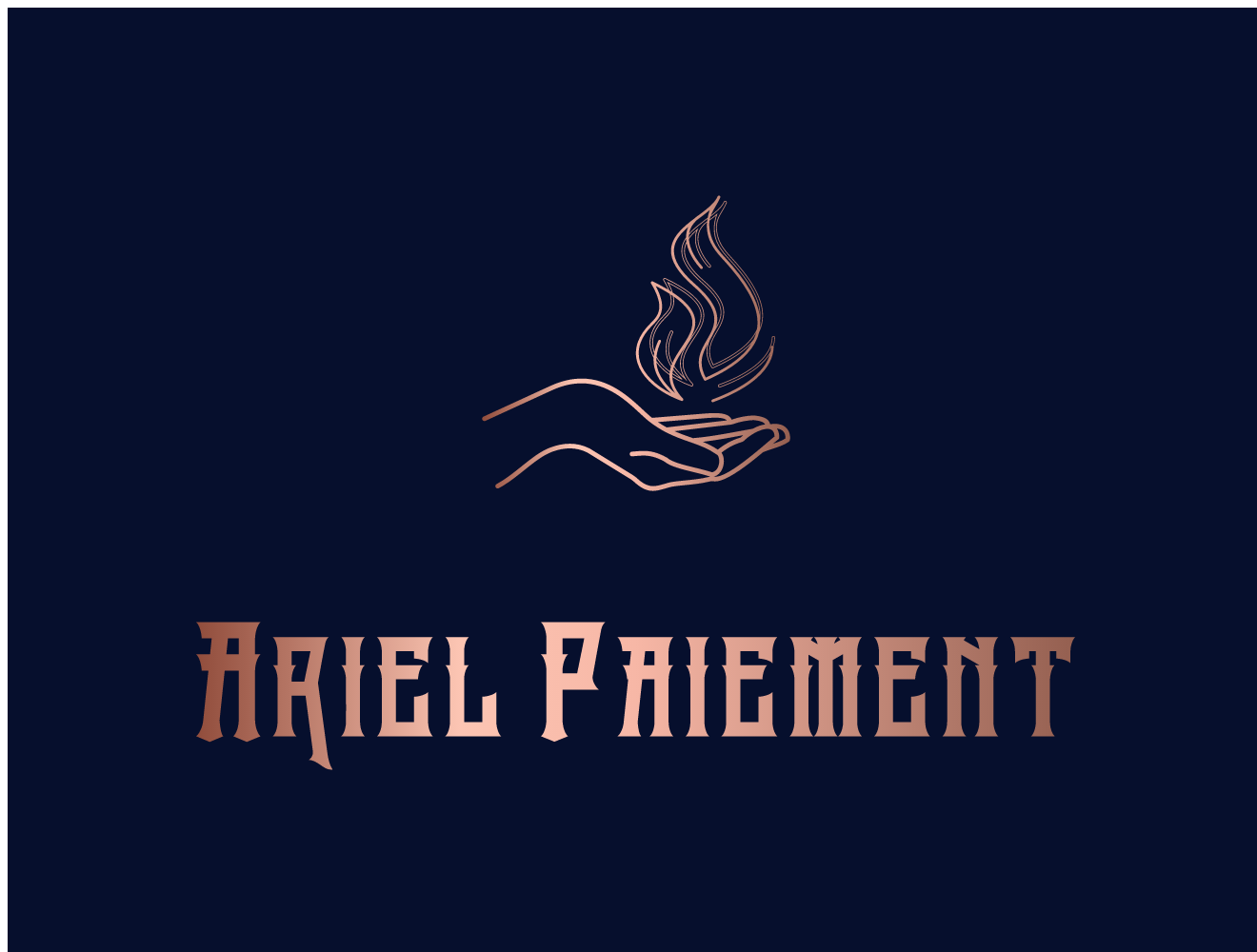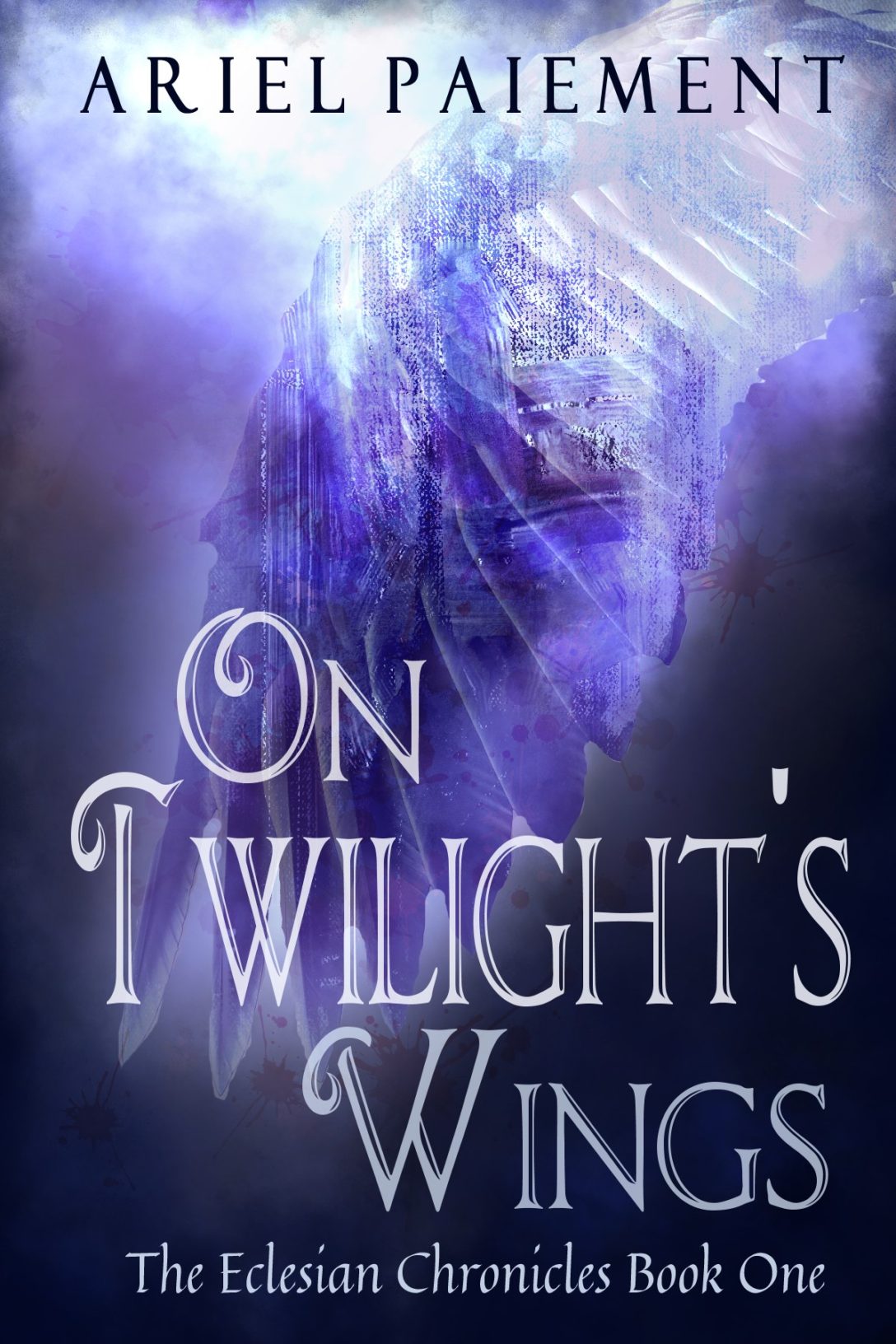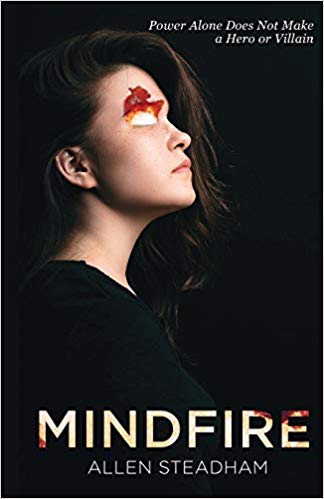Introduction
Okay, guys! So, this book review is a little bit of a different fantasy sub-genre than I’ve reviewed in the past. Hunter and Shifter were both more allegorical fantasy or high fantasy. This one is superhero fantasy. If you don’t know what that is, you can take a look at my Sunday Sub-Genres post on it here.
Normally, I’m not much for superhero books, honestly, so when Allen asked me if I did book reviews on my blog–which I do–and asked me if I’d be willing to review Mindfire, I was kind of a little bit… Hesitant. Yeah, I know. I read a lot, and so why would I be hesitant about this? Well, my family and good friends will attest to the fact that I seriously have a thing against superhero movies on the whole. I watch very few of them. Sorry to those of you out there who adore the genre! I’m not saying there’s anything wrong with it, obviously. I’m just saying I don’t enjoy it. Doctor Strange and the very rare episode of Agents of S.H.I.E.L.D when my family has it on is the extent of my superhero movie or show watching.
Given that, you might understand why I didn’t really feel overly excited about Mindfire. More like, cautiously curious. I knew Allen was a Christian author though, so I was really interested to see how he would handle superpowers and weaving God into his stories. I was pretty happy with what I got. So, that said, let’s get into the reader’s review first, and then we’ll talk about the writer’s side of it.
Reader’s Review
As I said above, I wasn’t jumping with excitement over reading Mindfire. I approached the book with curiosity because it wasn’t my usual genre. However, since I’d just finished blogging about superhero fantasy, I thought it would be a great example for my blog’s review section to help those looking to write this kind of fantasy.
As a reader, I found that I did have a bit of trouble getting into the story at first. I guess just because I don’t usually enjoy the genre. It also didn’t help that my reading time often consists of ten minutes snatched before work shifts or on a break from grading papers. So not all of the attention issues stemmed from the book. However, once I was into the book, I did enjoy it a lot more. I was invested in the characters and wanted to see what would happen to them.
Allen used a varied approach in how people had powers and why, which I appreciated. Some of the superheros were your typical, my powers just showed up or I had an accident and they manifested, kind of superhero. But others were genetic, like the werecats and werefoxes. One of my biggest complaints about superhero-themed books and movies is that they generally tend to develop the powers because they were in some freak accident or something. Obviously, that doesn’t hold true in every case, but things get pretty predictable after a while in the genre. Because that’s one of my biggest pet peeves about the genre, I was extremely happy to see that Allen didn’t do that. The story, while it may have highlighted superpowers, did not tell the typical story you see in the superhero genre.
One noticeable difference I saw was the characterization. Often, superhero films and the few books I have read seem to portray superheros as these epitomes of goodness. That’s going by the wayside a bit as you get heroes like Arrow who aren’t always morally black and white, and I appreciate that shift. I do believe right and wrong should be clear in any book or movie, and Allen definitely adhered to that, but the choices we make aren’t always black and white. I felt that Allen’s characters stayed true to that. Some of them made really terrible choices and had to live with the consequences, but all of them came across as very human. They had reasons for what they did, even if the reasons weren’t good. Superhero and supervillain alike struggled with decisions made and had things they regretted. In short, the characters weren’t all good or all bad. Even the best of them had their problems, just like we do in real life.
If you really enjoy this genre, you’re probably going to like this book. I will say that, for those who aren’t religious or aren’t Christian, just to be very transparent, you may not be the audience for this book. Allen is very overt in his talk about God, Christ, and salvation. Even when it isn’t directly mentioned, the theme of second chances, redemption, and forgiveness are woven throughout the entire book. If you don’t mind this, you’re probably going to enjoy the story. If you’re actively anti-Christian or just prefer to avoid reading books that are openly pressing home the points of Christianity, you may not like this. Still, if that’s not you or you’re just on the fence, I would highly recommend this book to you. It’s a good choice, and once I got into it, it was a very easy read with relatable characters. I don’t think you’ll regret it. As a bonus, parents, if you’re looking for a good book for your superhero-loving child or teen, this book would be appropriate for even the younger kids, though it might be a little hard for some of the young ones to grasp all the concepts.
If you’re interested in Mindfire, the purchase link is below.
Amazon
Writer’s Review
For those of you who are here to learn more about the craft of writing, this review is for you. Don’t read this if you plan to read the book and wish to avoid spoilers. Read the book first, then come back to this if you’re interested in seeing my take on what we can pull from this book. With that disclaimer, let’s jump right into this.
Characterization
Let’s start here because this is one of the things I felt the author did a phenomenal job with! Now, I kind of came to this book expecting a run of the mill superhero story. I was not, by any means, expecting characters who would come to life on the page the way Allen’s did. I guess I was anticipating larger than life characters for both superheros and supervillains. Relatable was definitely not in the list of expectations.
So, I was very happy when I discovered that the characters were relatable. Particularly Leia and Dane. These two characters both had superpowers, and both of them discovered more about themselves and those powers in the course of the book. These characters definitely went through some traumatic stuff. Dane lost his mom, the only family he felt he had left. Leia lost both of her aunts by the time things were said and done, she killed one of those aunts trying to protect her birth mother, husband, and unborn child, and she discovered her mother wasn’t really her mother, among other things. To top it all off, her birth mother is the supervillain everyone most feared: Malevolence. Not exactly what one wants to discover about one of their parents, right?
Through all of these challenges and difficulties, these two characters continually rise to the challenge. But they don’t make the choices you normally see people make in the superhero genre. These two, one of them a previous superhero and the other trying to figure out where she fits, both end up deciding not to become superheros. I was a bit shocked by this turn of events, especially with Dane, because their parents were superheros, and they had powers. Normally, things go the direction of saving the world (or at least their city) one crook at a time. But not with Mindfire.
All throughout the book, every character faces difficulties and decisions that aren’t fun to make. Leia and Dane are only two examples, which I felt were very prominent. But even the super-villain, Malevolence, is made relatable and human for the reader as the reasons for her choices and the difficulties she faced, which led to her assuming the identity Malevolence, are revealed through the book. No character remained flat or inaccessible because of some super-human ideal. Unlike Superman, who almost doesn’t seem touchable, every superhero and supervillain in this book is as human as you and I, with the exception of having a little extra boost of superhuman ability.
While not everyone here is going to write a superhero book, everyone here will have some degree of characterization required for their story. With Mindfire, you see a very good example of how to make characters realistic and relatable for the reader. If you’re writing fantasy, there’s a pretty good chance magic is involved, even if it isn’t in the form of superpowers, and other species besides humanity may also be front and center. You need to ensure that, despite these differences, readers can connect, and Mindfire is an excellent example of how to do that.
Themes
This is another area I felt worked well for Mindfire. Allen did a good job of weaving themes into his story. You can see the Christian influence everywhere, but this book isn’t allegorical like Joanna’s books Shifter and Hunter. Set in this world as opposed to other planets, Mindfire took a much less subtle, but still appropriate, approach to the author’s worldview. The most obvious themes in the book are those of redemption, forgiveness, and second chances.
Malevolence is probably the clearest example of these themes. While she wasn’t necessarily a huge obstacle our heroine had to overcome to save her loved ones and home, she still made choices that, while relatable, led to suffering. In particular, her choices in trying to be a mother to Leia indirectly led to the death of Leia’s mother-in-law and Black Fox, Dane’s mother. Her choices also led directly to deaths or injuries to people around Leia as Malevolence used her telepathy or telekinesis to protect her daughter. Through the course of the book, Malevolence gradually changes. She reverts back to Angela Merrick, her original identity, for a time until that’s too much to bear because of the guilt and pain. But once she’s back to Malevolence’s personality, she still doesn’t quite become like she was. Far from being a heartless villain who wants only power, she is a concerned mother, about to become a grandmother, and a grieving individual who has lost too much. As the story continues, Malevolence eventually does find forgiveness and redemption as well as a second chance. She goes from being the villain everyone fears to being friends with her daughter’s family and having a place to belong.
For writers interested in using themes, what you can learn from Allen’s approach in Mindfire is two-fold. First, you have to realize that a theme should be a natural extension of the story. If Malevolence hadn’t been working toward being better, hadn’t realized her mistakes, hadn’t regretted anything, then Allen’s themes wouldn’t have worked out. The characters and the story have to support it. Two, the integration should be smooth. If it fits well with the characters and story, this shouldn’t be too much of a problem, but the key point here is that readers should get the idea without being smacked in the face with it. It should be clear but not overwhelming or obvious in a heavy-handed way.
Christianity
Okay, so this was an area I had mixed feelings on. Allen wove themes of Christianity into the entire novel. (See my previous point on those themes). That worked really, really well for Mindfire. However, he also included some places where salvation, God, and Christ were discussed quite prominently. As a Christian author, I wasn’t particularly bothered by this. I appreciate the courage it takes for an author to overtly include Christianity that way because it definitely will alienate certain audiences. The mixed feelings came in more with certain conversations. Some of them felt a little bit contrived.
There were a few I really liked, such as the conversation between Leia and Sue, her adoptive mother, at a few points in the book as Sue tries to help Leia to understand that Christ and a relationship with God can be the calm in her storm as well as an answer to her current unrest. However, there were others that felt much less natural. The points where Leia was saved and the conversations between Sue and her mother in the flashback scenes felt a little more heavy-handed. They pulled me out of the story to sit and think about the scene instead of reading through it, grasping the main concept being presented, and moving on. I didn’t enjoy those parts as much because they felt out-of-place instead of intentionally woven in. The different terms used were also very much “Christianese”.
I think the thing to learn here is that your worldview, no matter what it is, can be presented in a way that’s natural and in a way that’s heavy-handed. Obviously, you don’t want to be the kind of writer who tries to hide their worldview. That’s not a good thing, and it’s, in my opinion at least, wrong to manipulate the reader like that. But worldview and beliefs ought to be woven into the story so that readers are able to see how it fits. It needs to make sense. If it’s feeling forced at all, it probably is. So, if you really need it to be there, find a way to smooth it out and fit it in without trying to make a round peg fit in a square hole. Readers will notice if you’re forcing it, and that isn’t what you want.
Conclusion
At the end of the day, despite points where the use of Christian terminology and Christian viewpoints was a little preachy, the book was still a good read. I skimmed those parts and moved on with reading the story without too much disruption to my suspension of belief. For writers looking to learn from Allen’s use of writing techniques in Mindfire, there’s definitely a lot to learn. Picking apart his writing style and the various tools he used will provide you with a lot of different things to learn. I’ve just scratched the surface in covering the areas I felt were most important. Hopefully you’ve learned something from this though. If you’re interested in Mindfire, the purchase link is below.
Amazon





